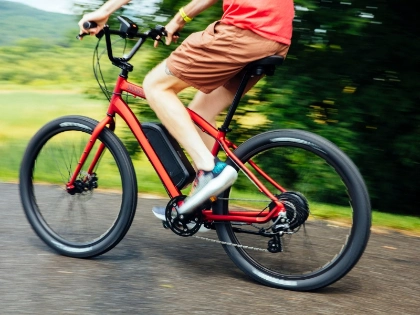Why Do I Feel So Bad After Cycling?
After a bike ride, feeling nauseous is a terrible feeling that can ruin the pleasure. Whether you're riding for fitness or competition, being ill can make cycling less enjoyable. Frequent cycling releases endorphins, which are happy-making, naturally occurring neurotransmitters and exhilarating surges. It also supports the immune system's strengthening.
1. You’re Dehydrated
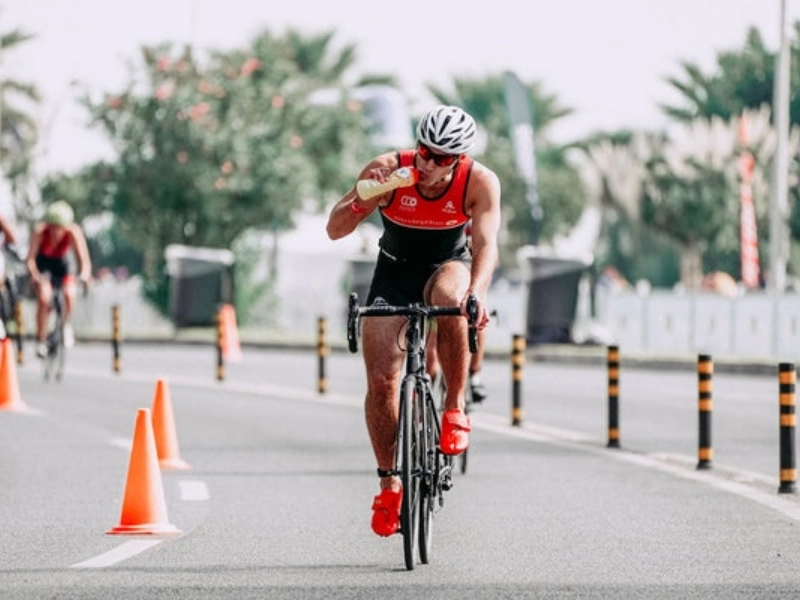 It may indicate dehydration if you get nausea after cycling. This is due to the fact that perspiration causes your body to lose essential salts and electrolytes that must be replenished in addition to water. You can rapidly get back on track by consuming an electrolyte-rich snack like Gatorade or a sports beverage. The hue and smell of your urine are also important indicators of your level of hydration, so pay attention to them. You should immediately start drinking extra water if your pee has a dark yellow color.
Try to pre-hydrate 12 to 24 hours prior to your cycling workout by consuming water or a sports drink to prevent dehydration. By doing this, you'll be able to get into your vehicle with a full tank and avoid having to stop often to use the restroom. Dehydration can make it difficult to recuperate because it can cause symptoms including decreased performance and cognitive ability.
It may indicate dehydration if you get nausea after cycling. This is due to the fact that perspiration causes your body to lose essential salts and electrolytes that must be replenished in addition to water. You can rapidly get back on track by consuming an electrolyte-rich snack like Gatorade or a sports beverage. The hue and smell of your urine are also important indicators of your level of hydration, so pay attention to them. You should immediately start drinking extra water if your pee has a dark yellow color.
Try to pre-hydrate 12 to 24 hours prior to your cycling workout by consuming water or a sports drink to prevent dehydration. By doing this, you'll be able to get into your vehicle with a full tank and avoid having to stop often to use the restroom. Dehydration can make it difficult to recuperate because it can cause symptoms including decreased performance and cognitive ability.
2. Excessive Training
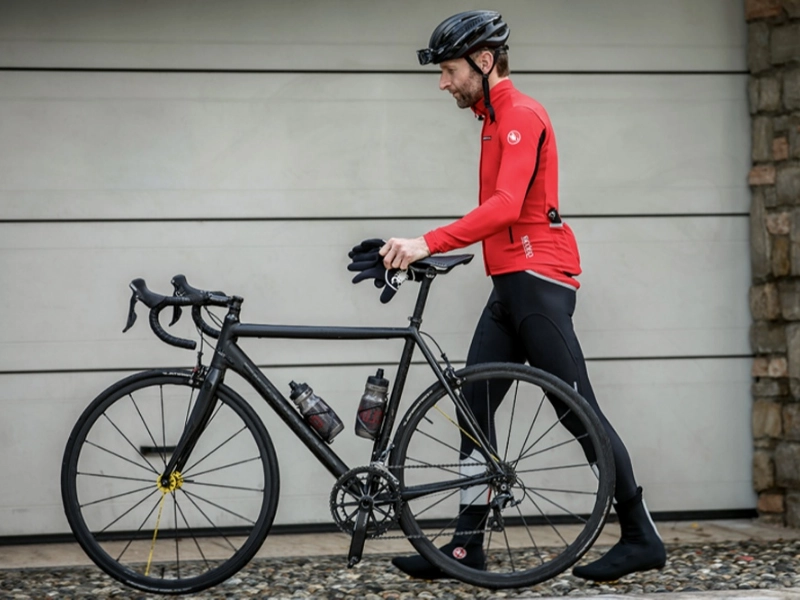 Building strength, agility, and endurance with cycling is highly recommended. However, the body is only capable of so much, so you must make sure you provide time for recuperation as well. If not, you run the risk of developing overtraining syndrome, which can have a number of disagreeable and perhaps harmful side effects.
All overtraining is just an unbalanced workload relative to recuperation time. Weariness, a general feeling of being sick, poor performance even after resting, and other mental and physical problems are some of the symptoms. These sensations are frequently experienced by cyclists following a period of rigorous training.
The time to take a break has arrived if you observe any of these symptoms. You'll feel better and be back to your best fitness level after taking a week or even two off. Tracking your metrics, such as body weight and resting heart rate, is also crucial to making sure you are striking the correct balance. Recuperation can also be facilitated by eating a balanced diet rich in fruits, vegetables, healthy fats, and protein.
Building strength, agility, and endurance with cycling is highly recommended. However, the body is only capable of so much, so you must make sure you provide time for recuperation as well. If not, you run the risk of developing overtraining syndrome, which can have a number of disagreeable and perhaps harmful side effects.
All overtraining is just an unbalanced workload relative to recuperation time. Weariness, a general feeling of being sick, poor performance even after resting, and other mental and physical problems are some of the symptoms. These sensations are frequently experienced by cyclists following a period of rigorous training.
The time to take a break has arrived if you observe any of these symptoms. You'll feel better and be back to your best fitness level after taking a week or even two off. Tracking your metrics, such as body weight and resting heart rate, is also crucial to making sure you are striking the correct balance. Recuperation can also be facilitated by eating a balanced diet rich in fruits, vegetables, healthy fats, and protein.
3. Inadequate food intake
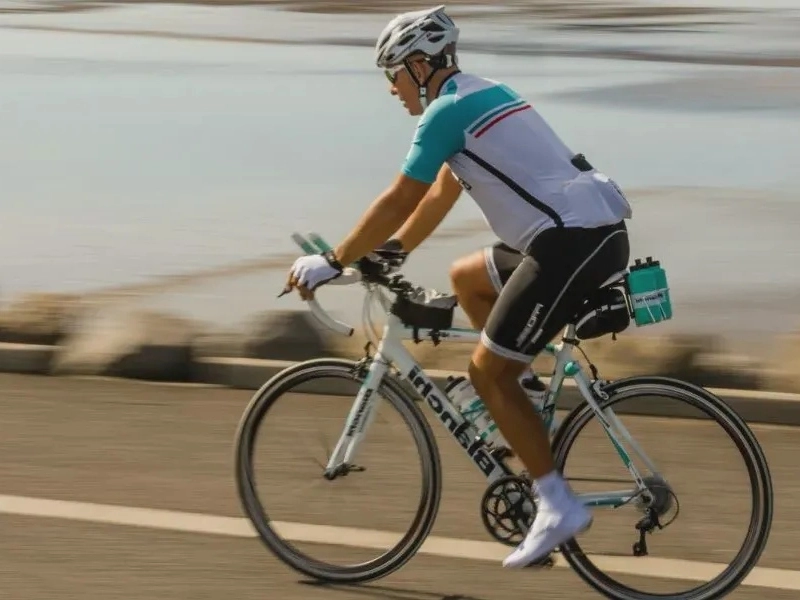 Keep in mind that cycling burns a lot of calories, so make sure you're getting adequate nutrition. Your rider counts may need to be adjusted if you're consuming a lot of water and carbohydrates but are still feeling hungry after your bike. Determining the optimal dietary regimen for your body might be facilitated by a qualified dietician.
During intense cycling, your muscles' glycogen stores are depleted, forcing you to burn carbs instead of oxygen. After your ride, you'll experience a slight drop in blood sugar; therefore, it's critical to consume something that will raise your glucose levels.
Try recording what you eat and when before, during, and after your rides for a few weeks if you're prone to feeling queasy after riding. It's possible that certain foods or even the time of day you ride are triggers for you.
Keep in mind that cycling burns a lot of calories, so make sure you're getting adequate nutrition. Your rider counts may need to be adjusted if you're consuming a lot of water and carbohydrates but are still feeling hungry after your bike. Determining the optimal dietary regimen for your body might be facilitated by a qualified dietician.
During intense cycling, your muscles' glycogen stores are depleted, forcing you to burn carbs instead of oxygen. After your ride, you'll experience a slight drop in blood sugar; therefore, it's critical to consume something that will raise your glucose levels.
Try recording what you eat and when before, during, and after your rides for a few weeks if you're prone to feeling queasy after riding. It's possible that certain foods or even the time of day you ride are triggers for you.
4. You’re Stressed
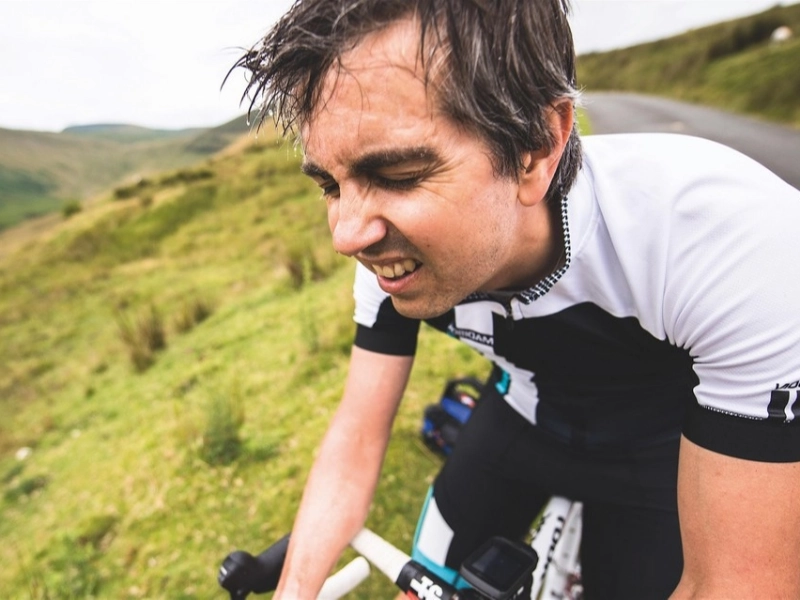 Stress is a natural reaction to the demands of life; it messes with your attitude, sleep schedule, and cognitive function. Although stress is a natural part of life, chronic stress can cause health issues, including heart attacks and peptic ulcers.
Riding a bicycle can help reduce stress because it releases feel-good and energizing neurotransmitters like dopamine and serotonin. Your confidence may also be increased by the release of these chemicals, particularly if you are reaching your objectives and becoming a better rider.
Try to figure out what's generating your stress if it occurs after a cycle. Next, divide the problems into those that you can and cannot change, and focus on solving each one separately. Maintaining a balanced diet and engaging in regular exercise are also crucial for stress management. Additionally, abstain from smoking and excessive alcohol consumption, as these behaviors might exacerbate stress. Instead, look for ways to unwind and engage in enjoyable activities for yourself.
Stress is a natural reaction to the demands of life; it messes with your attitude, sleep schedule, and cognitive function. Although stress is a natural part of life, chronic stress can cause health issues, including heart attacks and peptic ulcers.
Riding a bicycle can help reduce stress because it releases feel-good and energizing neurotransmitters like dopamine and serotonin. Your confidence may also be increased by the release of these chemicals, particularly if you are reaching your objectives and becoming a better rider.
Try to figure out what's generating your stress if it occurs after a cycle. Next, divide the problems into those that you can and cannot change, and focus on solving each one separately. Maintaining a balanced diet and engaging in regular exercise are also crucial for stress management. Additionally, abstain from smoking and excessive alcohol consumption, as these behaviors might exacerbate stress. Instead, look for ways to unwind and engage in enjoyable activities for yourself.

